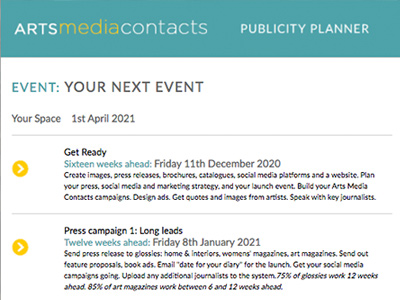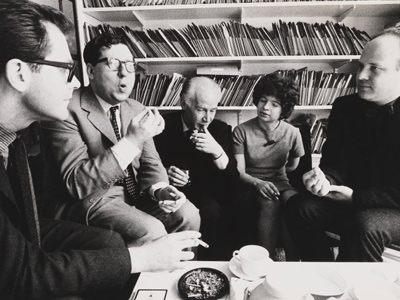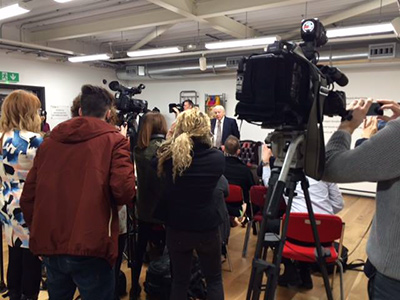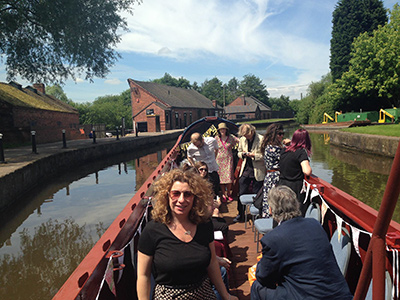1. Work out your timetable
Always schedule ahead for good PR and keep a close eye on deadlines. Many glossies, for example have high circulations and followings but long lead times.
Just send story ideas over in good time even if the press release is not ready – images and confirmed dates may be good enough. Don’t feel that you have to promote your exhibitions or events in a logical order according to the programme. If you have confirmed dates, title and images for a show in five month’s time then get on the phone to the magazines, ask what issue they are working on and send over what you have.


2. Do your homework
Be sure to read up on all journalists before approaching them with a story. Journalists find it off putting when a PR gets in touch about something completely wrong for their column. It puts you in really good stead when you have clearly read or followed their work and send in an idea that is totally right.
3. Think about friendship groups
When promoting an event then put the artist’s name into the news area of search engines and see who has written about them in the past. Who are the fans of this artist? Who has written features, interviews or books about them? Who would be offended that they didn’t hear about their latest show? Make sure you get in touch.


4. Use online resources
Arts PR is time-consuming and we know that communications officers at venues can be pressed for time. Make good use of services to take the pressure off and cut down on the time. Here are a few:
1. Arts Media Contacts for finding media outlets and journalists, press release design & distribution and pushing your events to the listings guides www.artsmediacontacts.co.uk
2. Later | Mavely or Hootsuite for managing your social via one dashboard. Saves time, allows for quick sign-off and to plan ahead across platforms. www.later.com www.hootsuite.com
3. Bit.ly – for shrinking URLS and creating QR Codes to measure and monitor links to your site and your shows, especially from social. Bit.ly.com
4. PR Newswire – for a story of national interest : prnewswire.co.uk
5. Coverage Book – to gather up press cuttings into a presentation folder : www.coveragebook.com
5. Organise Press Trips
People choose art journalism as a career in order to go out to interesting places, meet artists travel and have great experiences. Bear this in mind when you organise press events: create adventures, offer exclusive interviews and experiences.

